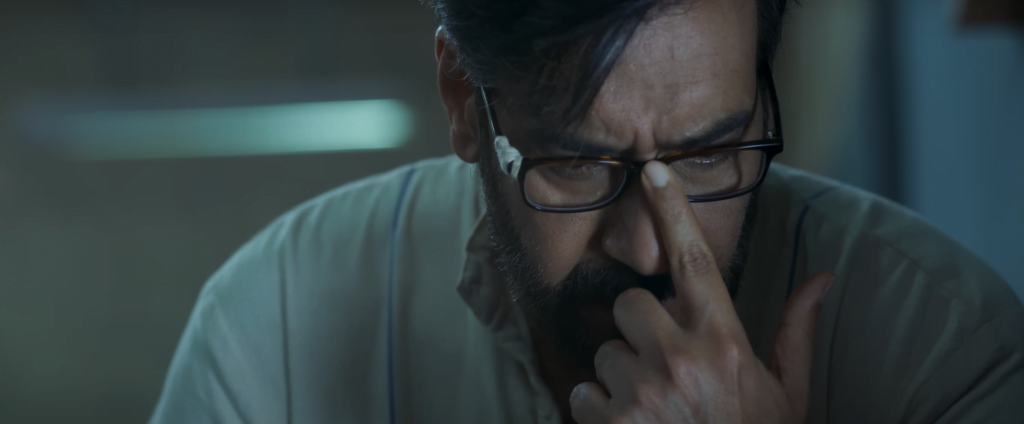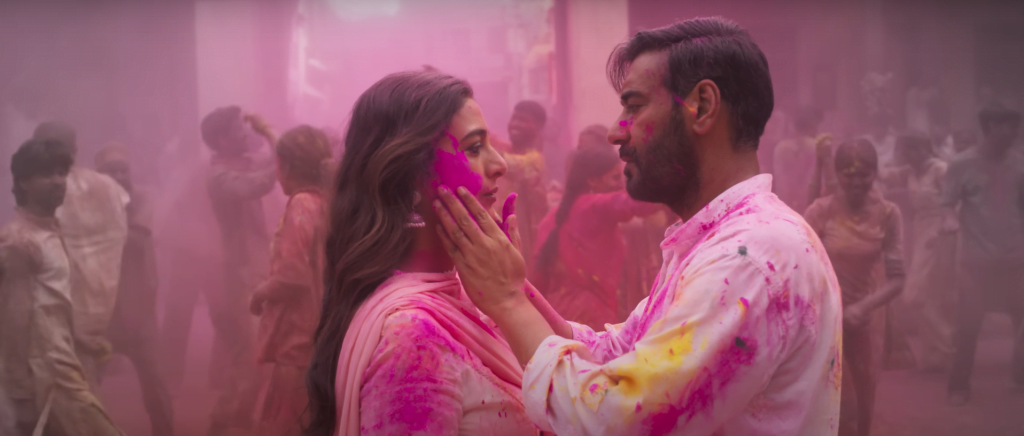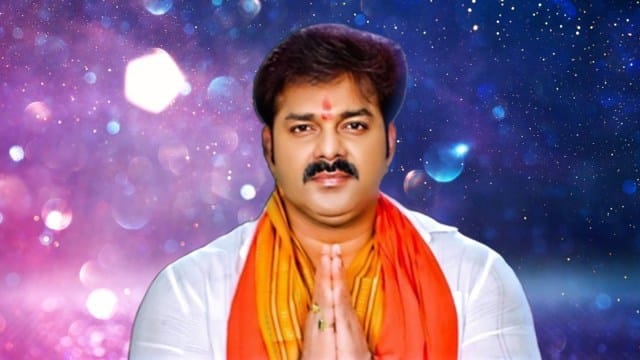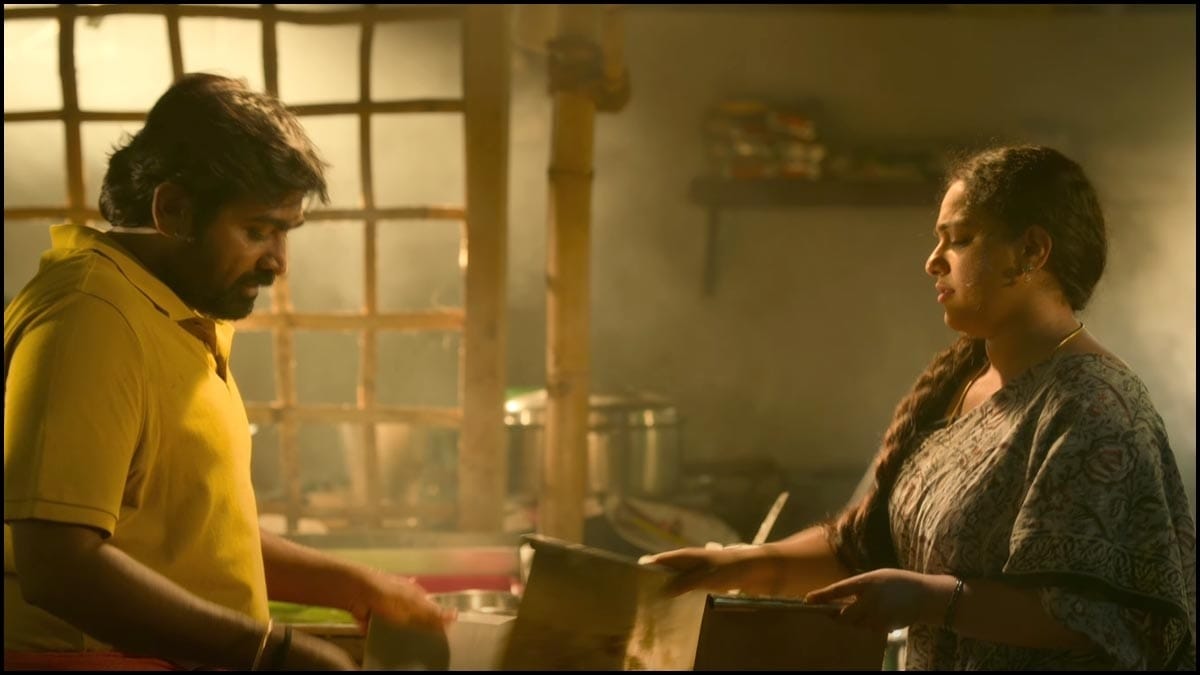Neeraj Pandey’s latest romantic thriller film Auron Mein Kahan Dum Tha fails to deliver on the promise of either a romance or a thriller. Released in theatres on 2nd August, Auron Mein Kahan Dum Tha stars the much-adored on-screen couple Tabu and Ajay Devgn who play the role of the star-crossed lovers. This 100-crore budget film made a disappointing debut with a box-office day-one collection of 1.85 crore.
Every bit of the film, from its pre-screening promotion to its execution, is marred by a sense of lack. Pandey’s lazy writing and directing of Auron Mein Kahan Dum Tha hardly leave any opportunity for the beloved Tabu-Devgn ‘jodi,’ to salvage the film.
A story without a story
Through the initial scenes in the film, Krishna (Ajay Devgn) is established as one of the most feared inmates in a Mumbai prison. Though charged with double murder, Krishna is released from prison for good behaviour. Vasudha (Tabu), Krishna’s erstwhile lover is now a reputed business tycoon married to a man called Abhijeet (Jimmy Sheirgill). The story in the present anticipates the possible events that would unfold after the two met following the 23 years of separation. The flashbacks to the past depict the love story of young Krishna and Vasudha played by Shantanu Maheshwari and Saiee Manjrekar.

The film employs the Rashomon effect to tell the various versions of the story that led to the two murders and Krishna’s subsequent imprisonment. However, the suspense that the film builds up to falls through, leaving the audience disappointed with the climax. Overall, it appears that the story of this 144-minute film could have been told better in a 15-minute short film.
Flat characters, tropes and stereotypes
Perhaps one of the only commendable aspects of the film is the age-appropriate casting. Moving away from the conventional Bollywood trend of casting younger actresses against older actors, it was refreshing to see Tabu and Devgn side by side. However, much of the love story in the film moves forward through the flashbacks portraying the young Krishna and Vasudha – characters that fail to match their adult versions. What is missing are tiny details necessary to establish continuity and make the young characters the believable counterparts of their older selves.

The transformation of Krishna’s character from a ‘computer geek,’ to a feared bully in prison is unconvincing and adheres to the old Bollywood stereotype that the personality of a person changes the moment they remove their eyeglasses. It is also evident that Vasudha’s character has been written by a man. Despite the strength and potential depicted by her character as an aspiring young student and later a powerful business tycoon, she is portrayed as subservient to the demands and whims of Krishna and Abhijeet.
The scenes which bring the adult Krishna and Vasudha together fail to capture the erstwhile yearning and chemistry of the young couple portrayed by Maheshwari and Manjrekar. The dialogues written for the adults do not resonate with the audience because their exchanges feel strained – almost as if two strangers are conversing for the first time.
The secondary characters in the film mostly appear as stereotypes or comic reliefs. The prison inmates represent the unimaginative dichotomy of the ‘bully,’ and the ‘benevolent.’ The Parsi businessman stereotype often featured in old Bollywood films has been revived in this film. The backstory of the wanted goon Mahesh Desai (Sayaji Shinde) also felt like a digression, since it does not add any substance to the main plot. Another scene where Jignesh reaches the heavily guarded office of the person creating fake passports to find a teenage girl behind it all becomes a shoddy and unnecessary attempt at evoking laughter. The poorly timed and executed comic reliefs stick out like a sore thumb within the romantic thriller plot – almost as if they were an afterthought.
Jimmy Sheirgill’s character Abhijeet is one of the secondary characters that had the potential to shine within the film. However, the script does not allow any of the characters to be fleshed out plausibly. Abhijeet’s self-proclamation of his insecurity is never developed upon, nor is the reason behind his dedication to facilitate Krishna’s release from prison revealed. However, it is commendable that his character hasn’t been stereotyped as a jealous husband or an altruistic man. Though poorly executed, Pandey attempted to portray a refreshingly nuanced ‘third wheel,’ in the love story of Krishna and Vasudha through the character of Abhijeet.
Auron Mein Kahan Dum Tha tries to incorporate the old Bollywood charm
The film lacks appropriate colour correction and grading, which largely flattens its experience. It appears that blue has been chosen to represent the present, while the past appears in various gradations of yellow, red and green. However, the film diverts from this norm many a time, especially in a Janmashtami matka-breaking scene in which blue is worn by the people making the human pyramid. One of the festival scenes that stands out is the one that portrays Holi. Nevertheless, it is neither anything that the audience hasn’t seen before in Bollywood, nor has it been directed exceptionally well.

The film’s genre demanded better camera angles and framing than that which was delivered. The action sequences in the film are yawn-inducing and further question the plausibility of Krishna as the prison bully. Since the scene transitions lacked creativity, the thriller and romantic aspects seemed to belong to two separate films altogether. The sets used for the film lack an organic touch, which further alienates the audience from the central characters.
The resurfacing of the ‘stalking-until-she-falls-in-love,’ trope in the film was disheartening. Though the portrayal of stalking in a positive light has long been the subject of several feminist discourses on Bollywood films, the writer of Auron Mein Kahan Dum Tha seems to defiantly decide that this was the only appropriate way of depicting the beginning of Krishna and Vasudha’s love story.
M.M. Kreem’s background score for Auron Mein Kahan Dum Tha exudes the drama evoked by scores in regional television serials and seems overdone because it does not match the anti-climatic tendencies of the film. The soundtracks “Ae Dil Zara” and “Jahan Se Chale The” had the potential to touch their audience. However, the over-exploitation of slow motion and drawn-out sequences paired with these songs diminish their effect. The scenes that accompany the song “Ae Dil Zara” for instance have very little action and fail to engage the audience with the characters’ emotions.
The film tries to incorporate the old Bollywood “charm” through several elements, especially evident through the stylisation of the opening and ending credits and character stereotypes. Nevertheless, the resurfacing of the ‘stalking-until-she-falls-in-love,’ trope in the film was disheartening. Though the portrayal of stalking in a positive light has long been the subject of several feminist discourses on Bollywood films, the writer of Auron Mein Kahan Dum Tha seems to defiantly decide that this was the only appropriate way of depicting the beginning of Krishna and Vasudha’s love story.
Overall, Auron Mein Kahan Dum Tha lacks the ‘dum,’ (strength) required to keep the audience engaged and entertained for the entire 144-minute duration of the film. There are a few moments in which the suspense peaks, but the resolution that follows is largely unimpressive, anticlimactic and predictable. The romantic and the thriller aspects seem disjointed and hastily put together.
The film’s attempt to tell a fresh love story is commendable, however, the suspense built for the climax is drawn out and not of much consequence to the plot. One might enjoy the few moments of side-by-side screen presence of Tabu and Devgn. Maheshwari’s acting as young Krishna also stands out. These are some of the only reasons why one might consider watching the film at least once.
About the author(s)
Madhusmita Mukherjee (she/they) is a queer feminist writer and photographer from Assam who is passionate about advocating gender equality and social justice. She completed her postgraduation in English from the University of Delhi (2022-24). Her academic interest lies in gender studies, media memory and cultural studies. Her recent publication features in the Zubaan anthology Riverside Stories: Writings from Assam edited by Banamallika.






